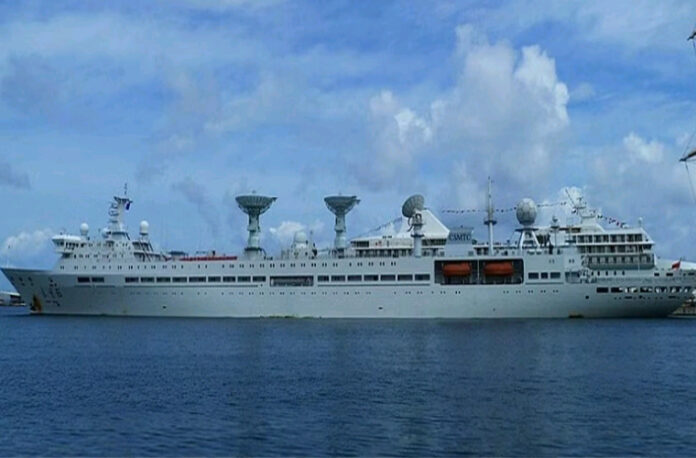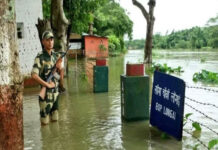Days ahead of a planned missile test by India, a Chinese spy ship named Yuan Wang VI. The missile is likely to be fired from the Abdul Kalam Island off the coast of Odisha between 10 and 11 November, for which India has already issued a NOTAM (Notice to Airmen). It is understood that India may test the submarine-launched ballistic missile K-4, meant for the country’s indigenous nuclear-powered ballistic missile submarines (SSBNs).
Leading open source intelligence expert Damien Symon, running the popular Twitter handle @detresfa_ , said the missile may fly to a range of 2,200 kilometres, according to the NOTAM issued.
Sources in the defence establishment said the Chinese spy ship has the ability to track the trajectory, accuracy, speed and range of a missile test.
The deployment is also in sync with a Chinese aerospace mission that flies over the Bay of Bengal between 15 and 20 November, which would put the Yuan Wang VI near the Indian missile test’s splash zone as well, Symon said.
According to South Block officials, the strategic support ship was actually in the Indian Ocean to monitor Chinese satellite launches planned on November 12 and at the end of the month. Unlike its sister ship Yuan Wang 5, which docked at the Chinese leased port of Hambantota in Sri Lanka in August, the Yuan Wang 6 is not slated to enter into any Sri Lankan port but is out in open sea south of Lombok Straits.
Beijing is not only exploring sea routes in the Indian Ocean to reach the Chinese base in Djibouti on the east coast of Africa far removed from India but also through the Arctic Circle to reach European ports like Hamburg, where Chinese company COSCO has bought over 24 per cent of equity.
India, on its part, has made it known to its neighbours particularly Sri Lanka about the risks of allowing Chinese military vessels to dock at their port for refuelling or rest and recreation purposes. It has also asked these countries not to use their tankers to refuel Chinese warships on the high seas as it would have an impact on bilateral ties with India.


















































